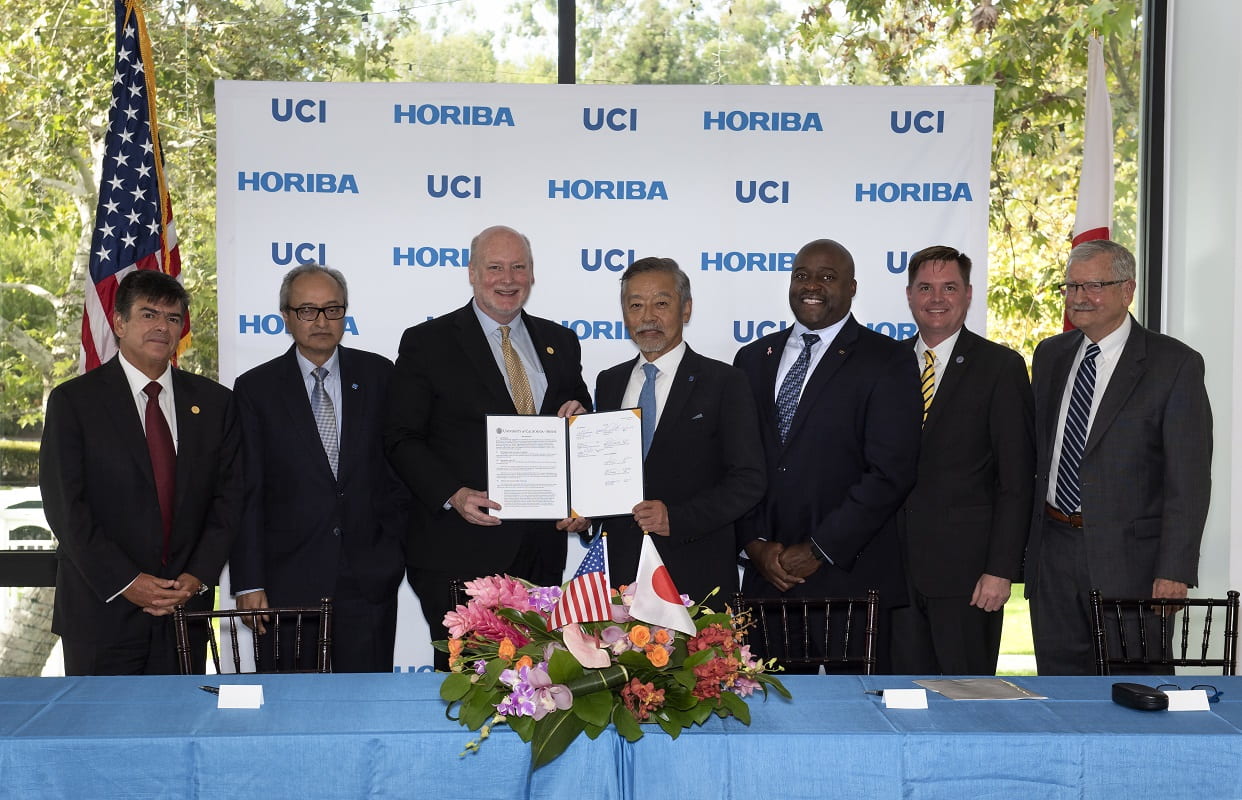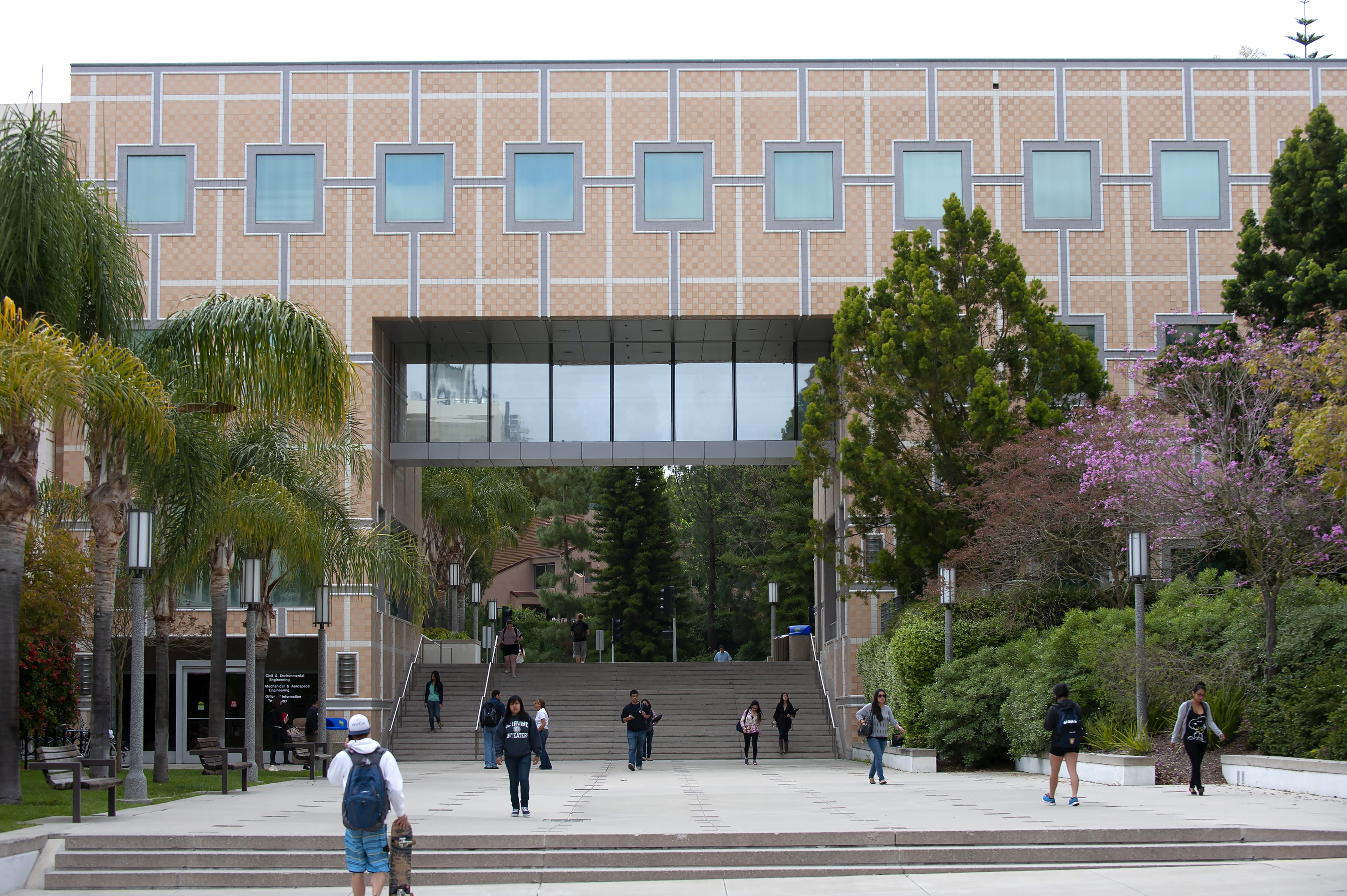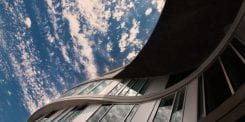Horiba Group commits $9 million to UCI for new institute
Research to focus on better connectivity between transportation and energy sectors

Irvine, Calif., Aug. 29, 2018 – Horiba Group, a leading global provider of analytical and measurement systems, has committed $9 million to the Advanced Power and Energy Program at the University of California, Irvine to establish the Horiba Institute for Mobility and Connectivity.
HIMAC will focus research and education efforts on combining formerly disparate energy and transportation sectors into an integrated and complementary system. Its faculty, staff and students will work to simultaneously address the environmental impacts of climate change and air quality, energy independence and security, and the affordability of fuel and electricity for consumers.
In addition to Horiba’s gift, UCI’s Henry Samueli School of Engineering and Office of the Provost and Executive Vice Chancellor will provide funds for staffing and ongoing activities at the new entity.
“We are thrilled that Horiba has chosen to partner with UCI in establishing this transformative institute,” said UCI Chancellor Howard Gillman. “HIMAC will be uniquely positioned to lead the reinvention of how we produce, distribute and use energy to improve peoples’ lives and protect the environment.”
Atsushi Horiba, chairman and CEO of Horiba Group, said: “We are delighted that our longstanding relationship with APEP and UCI has led to the creation of HIMAC, which will produce innovations for the betterment of the world community.”

Steve Zylius / UCI
HIMAC scientists and engineers will pursue solutions to three grand challenges facing the future of energy and the environment. The first is to develop vehicles, fuel supply chains and mobility systems that emit no greenhouse gases or pollutants that cause smog, acid rain and other health hazards. Second is to connect zero-emission modes of transport with an electric grid that incorporates renewable wind and solar resources at a much higher level than exists today. Third is to invent the next generation of conveyances that can sense their surroundings, “talk” with one another and communicate with the infrastructure.
“APEP is at the forefront of the research into creating better, more efficient and environmentally sustainable transportation and energy production options,” said director Scott Samuelsen, UCI professor of mechanical & aerospace engineering. “Our efforts will be greatly enhanced by collaboration with Horiba, a major leader in the development of next-generation mobility technologies as well as instruments and equipment to support energy and environmental research.”
HIMAC, to be housed in a state-of-the-art facility in UCI’s Engineering Gateway building, will be a focal point of interdisciplinary research at the university, bringing together experts in engineering, physical sciences, information and computer sciences, social sciences and business. Specific areas of study will include electrochemistry, renewable fuels and energy storage.
“This institute is a prime example of industry and academia partnering to advance new technology for the benefit of consumers worldwide,” said Gregory Washington, Stacey Nicholas Dean of The Henry Samueli School of Engineering.
About the Advanced Power and Energy Program at UCI: APEP addresses the broad utilization of energy resources and the emerging connection of electric power generation, infrastructure, transportation, water resources and the environment. It seeks to develop, promote and deploy increasingly efficient and environmentally sustainable power production and energy conversion worldwide, with a focus on the creation and sharing of new knowledge through fundamental and applied research, education and outreach.
About the University of California, Irvine: Founded in 1965, UCI is the youngest member of the prestigious Association of American Universities. The campus has produced three Nobel laureates and is known for its academic achievement, premier research, innovation and anteater mascot. Led by Chancellor Howard Gillman, UCI has more than 30,000 students and offers 192 degree programs. It’s located in one of the world’s safest and most economically vibrant communities and is Orange County’s second-largest employer, contributing $5 billion annually to the local economy. For more on UCI, visit www.uci.edu.
About Horiba Group
Headquartered in Kyoto, Japan, the Horiba Group of worldwide companies provides an extensive array of instruments and systems for applications ranging from automotive R&D, process and environmental monitoring, in-vitro medical diagnostics, semiconductor manufacturing and metrology, to a broad range of scientific R&D and QC measurements. Proven quality and trustworthy performance have established widespread confidence in the Horiba Brand. For more on Horiba, visit www.horiba.com.
Media access: Radio programs/stations may, for a fee, use an on-campus ISDN line to interview UCI faculty and experts, subject to availability and university approval. For more UCI news, visit wp.communications.uci.edu. Additional resources for journalists may be found at communications.uci.edu/for-journalists.

